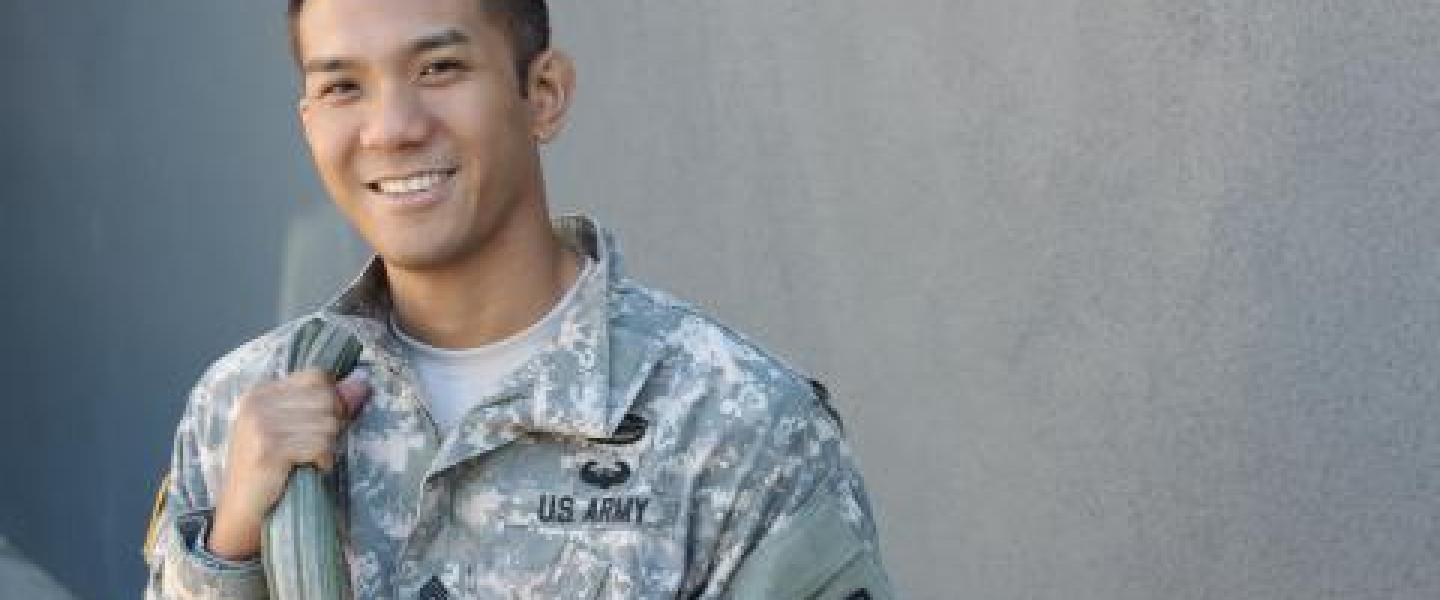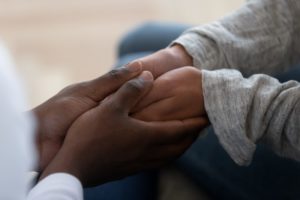When you buy through our links, we may earn a commission. Products or services may be offered by an affiliated entity. Learn more.
Trauma and Sleep
If you or someone you know is in crisis, dial 988 to reach the Suicide and Crisis Lifeline, which provides 24/7, free, and confidential support.
Experiencing trauma can increase the risk of mental and physical health issues, and has the potential to negatively affect sleep quality. Alertness and hyperarousal related to the effects of the body’s trauma response often contribute to the symptoms of insomnia. After a traumatic event, many people have difficulty falling asleep, wake up more often during the night, and have trouble falling back asleep.
The Impacts of Trauma on Sleep
Sleep issues are common after a traumatic experience . Some people experience delayed reactions after traumatic events, which may include depression, fatigue, nightmares, and even the development of sleep disorders. If these symptoms persist over time, or if they begin to interfere with work, school, or relationships, they may be a sign of more severe post-traumatic stress.
Trauma can affect sleep architecture, which means that it can change how the body moves through sleep cycles and stages. Experts are working to understand the ways trauma alters sleep architecture, but research suggests that rapid eye movement (REM) sleep appears to be the stage most affected. REM sleep is important for storing memories and processing emotions, and dreams during REM sleep tend to be more fantastical and bizarre.
Distressing dreams and nightmares are common to trauma. Survivors often have dreams about the traumatic event that either directly replay the experience or contain trauma-related emotion, details, and symbols. Researchers hypothesize that trauma-related dreams are caused by the brain’s fear response, and may represent the mind’s attempt at working through a traumatic experience.
While sleep issues after a traumatic experience can be distressing, they may also be an important opportunity for treating and healing from trauma. Research suggests that getting adequate sleep after a traumatic event can reduce intrusive trauma-related memories and make them less distressing. Managing sleep issues in the early treatment of trauma may reduce the risk of developing post-traumatic stress disorder (PTSD) .
Looking to improve your sleep? Try upgrading your mattress.
Sleep Disorders After Trauma
Insomnia is one of the most common sleep issues related to trauma and may resolve on its own with time. More severe and persistent sleep disorders are usually seen in people with higher levels of post-traumatic stress and PTSD . While rare, other sleep disorders that may develop after experiencing trauma include nightmare disorder, periodic limb movement disorder, sleep terrors, and parasomnias such as REM sleep behavior disorder.
Childhood Trauma and Sleep
Childhood trauma can have a significant impact on childhood brain development, and can continue to affect a person’s health into adulthood. Adverse childhood experiences (ACEs) have been found to increase the risk of mental and physical health problems later in life, including depression, anxiety, heart disease, and even premature death.
The development of sleep problems in response to childhood trauma may increase the risk of diseases later in life . Up to one-half of children display some symptoms of PTSD after trauma , including hyperarousal and trouble sleeping. Sleep problems may persist or get worse as the child progresses through adolescence and into adulthood.
Compared to adults with few or no ACEs, adults with a significant amount of childhood trauma are more than twice as likely to have trouble falling asleep and are also twice as likely to feel tired after a full night’s sleep. The effects of ACEs on sleep can last for up to 50 years , with each ACE increasing the risk of inadequate sleep as an adult by 20%.
Trauma experienced during childhood can also affect the severity of insomnia in adulthood. In adult patients diagnosed with insomnia, those with a high number of ACEs wake up more often during the night and have more disturbed sleep than those with few or no ACEs.
The Effects of Trauma on the Body
Experiencing a potentially traumatic event is common. In fact, research suggests that almost 90% of people are exposed to at least one potentially traumatic event during their lives . When the brain anticipates a threat, it reacts quickly to protect itself from harm. An internal alarm system, called the stress response or the fight-flight-freeze response, triggers physiological changes throughout the body. A cascade of hormones are released, muscles tense, heart rate increases, and breathing quickens as the body prepares to defend against threats.
After the threat or traumatic experience has ended, the body’s stress response begins to return to baseline. Initial reactions following a traumatic event often include confusion, anxiety, physical arousal, and difficulty expressing emotions. Challenging or distressing reactions to traumatic experiences often lessen with time as the body and mind process the event and heal.
Post-Traumatic Stress Disorder
Post-traumatic stress disorder (PTSD) is a condition characterized by recurrent and involuntary memories of the traumatic event during the day through flashbacks or during sleep as nightmares. People with this condition may avoid external reminders, such as people, places, and activities, and internal thoughts or feelings surrounding the event. Friends and loved ones around them may notice mood changes as they become more easily startled and hyper-aware of potential danger.
Research suggests that less than 10% of people exposed to a traumatic event develop post-traumatic stress disorder. It is important for people with the symptoms of PTSD to talk to their doctor and learn about treatment options. There are effective treatments for PTSDthat can help survivors heal from the lingering effects of trauma.
Tips for Sleeping After Trauma
Traumatic experiences commonly affect the quantity and quality of your sleep. Be patient with yourself and try to have realistic expectations about the time it will take for your body to heal. Working with a doctor, psychologist, or counselor can help you create achievable goals for managing sleep issues after trauma. There are a number of ways to promote quality sleep as you heal from trauma.
- Maintain a regular sleep schedule: Routine is important for getting restful, quality sleep. Going to sleep and getting up at the same time every day, even on weekends, helps signal your body to rest at the appropriate times.
- Sleep where you feel safe: Traumatic events may leave you feeling unsafe, which can make it challenging to feel calm enough to fall asleep. Consider what changes would make your sleeping environment feel safer during recovery. This can include someone else sleeping close by, keeping a phone within reach, or keeping a dim light on in the bedroom.
- Engage in relaxing activities: Activating the body’s relaxation response is a natural way to combat stress. Relaxation exercises are one way to stimulate this response to calm the body and mind before bed.
- Do not force sleep: If you find yourself tossing and turning for more than 20 minutes, it may be best to get out of bed and engage in a calming, quiet activity instead. This can be a warm bath, reading, or listening to music. Go back to bed once you begin feeling tired.
- Seek professional care: There is no right way to process a traumatic experience, but one essential aspect of healing from trauma is knowing when to ask for support. Doctors, counselors, and social workers are trained in helping people cope with and heal from the consequences of a traumatic event.

Still have questions? Ask our community!
Join our Sleep Care Community — a trusted hub of sleep health professionals, product specialists, and people just like you. Whether you need expert sleep advice for your insomnia or you’re searching for the perfect mattress, we’ve got you covered. Get personalized guidance from the experts who know sleep best.
References
13 Sources
-
Babson, K. A., & Feldner, M. T. (2010). Temporal relations between sleep problems and both traumatic event exposure and PTSD: a critical review of the empirical literature. Journal of anxiety disorders, 24(1), 1–15.
https://pubmed.ncbi.nlm.nih.gov/19716676/ -
Gieselmann A, Ait Aoudia M, Carr M, et al. Aetiology and treatment of nightmare disorder: State of the art and future perspectives. J Sleep Res. 2019;28(4):e12820. doi:10.1111/jsr.12820
https://pubmed.ncbi.nlm.nih.gov/30697860/ -
Kleim, B., Wysokowsky, J., Schmid, N., Seifritz, E., & Rasch, B. (2016). Effects of Sleep after Experimental Trauma on Intrusive Emotional Memories. Sleep, 39(12), 2125–2132.
https://pubmed.ncbi.nlm.nih.gov/27748249/ -
Vandrey, R., Babson, K. A., Herrmann, E. S., & Bonn-Miller, M. O. (2014). Interactions between disordered sleep, post-traumatic stress disorder, and substance use disorders. International review of psychiatry, 26(2), 237–247.
https://pubmed.ncbi.nlm.nih.gov/24892898/ -
Colvonen, P. J., Masino, T., Drummond, S. P., Myers, U. S., Angkaw, A. C., & Norman, S. B. (2015). Obstructive Sleep Apnea and Posttraumatic Stress Disorder among OEF/OIF/OND Veterans. Journal of clinical sleep medicine, 11(5), 513–518.
https://pubmed.ncbi.nlm.nih.gov/25665698/ -
Centers for Disease Control and Prevention. (2021, April 2). About the CDC-Kaiser ACE study., Retrieved February 14, 2023, from
https://www.cdc.gov/violenceprevention/aces/index.html -
Brindle, R. C., Cribbet, M. R., Samuelsson, L. B., Gao, C., Frank, E., Krafty, R. T., Thayer, J. F., Buysse, D. J., & Hall, M. H. (2018). The Relationship Between Childhood Trauma and Poor Sleep Health in Adulthood. Psychosomatic medicine, 80(2), 200–207.
https://pubmed.ncbi.nlm.nih.gov/29215455/ -
A.D.A.M. Medical Encyclopedia. (2020, October 2). Traumatic events and children. MedlinePlus., Retrieved February 14, 2023, from
https://medlineplus.gov/ency/patientinstructions/000588.htm -
Chapman, D. P., Wheaton, A. G., Anda, R. F., Croft, J. B., Edwards, V. J., Liu, Y., Sturgis, S. L., & Perry, G. S. (2011). Adverse childhood experiences and sleep disturbances in adults. Sleep medicine, 12(8), 773–779.
https://linkinghub.elsevier.com/retrieve/pii/S1389945711001663 -
Sullivan, K., Rochani, H., Huang, L. T., Donley, D. K., & Zhang, J. (2019). Adverse childhood experiences affect sleep duration for up to 50 years later. Sleep, 42(7), zsz087.
https://academic.oup.com/sleep/article/doi/10.1093/sleep/zsz087/5485469 -
Kilpatrick, D. G., Resnick, H. S., Milanak, M. E., Miller, M. W., Keyes, K. M., & Friedman, M. J. (2013). National estimates of exposure to traumatic events and PTSD prevalence using DSM-IV and DSM-5 criteria. Journal of traumatic stress, 26(5), 537–547.
https://pubmed.ncbi.nlm.nih.gov/24151000/ -
Breslau N. (2009). The epidemiology of trauma, PTSD, and other posttrauma disorders. Trauma, violence & abuse, 10(3), 198–210.
http://journals.sagepub.com/doi/10.1177/1524838009334448 -
U.S. Department of Veterans Affairs (2022, November 9). National Center for PTSD: PTSD treatment basics., Retrieved February 14, 2023, from
https://www.ptsd.va.gov/understand_tx/tx_basics.asp











